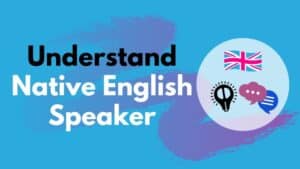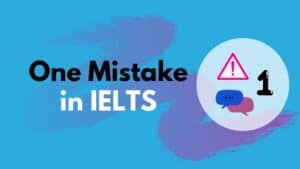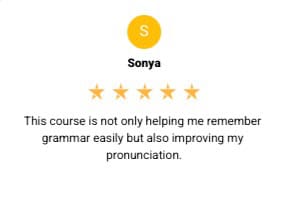How to Improve your Listening Skills in English
How can you improve your listening skills in English?
What’s the best way to prepare for the IELTS listening and the TOEFL listening exams?
In this article, we will find out more about both of these exams and how to improve your listening skills in English.
Table of Contents
What are IELTS and TEOFL?
IELTS and TEOFL are international exams assessing a person’s level of English.
Both are used and accepted by many universities, immigration bodies and also employers across the world, to ensure applicants have a good enough level of English to study, live or work in a particular institute or country.
IELTS is run by a partnership of three organisations and has an academic module and a general English module.
Find out more about the 2 modules here.
TOEFL is run by an American organisation called ETS and has two exams, the long-running TOEFL iBT and more recently created TEOFL Essentials.
How to improve your listening skills
In order to improve your listening skills in English, there are basically two kinds of listening practice activities you can do;
Extensive Listening: Listening for fun (often longer passages, e.g. podcast episodes, films…)
Intensive Listening: Listening, analysing and studying (often shorter passages where you need to identify specific information)
It’s important to do both. As you prepare for a specific exam, then you will need to do more intensive listening practice. This will help you to pick up the skill of identifying details, focusing on certain grammar, vocabulary or pronunciation.
For both types of listening, some theorists believe you should choose passages where you can understand around 90% of the language (something Stephen Krashen calls Comprehensible Input).
In reality, this is something a teacher can control, but it may be a challenge for students to find appropriate material.
Some useful sources of listening passages are:
Get my free e-book of Listening Materials

Should I use subtitles for films?
A great form of extensive listening is watching films. Subtitles can help understanding, but generally speaking, you should avoid subtitles in your own language, otherwise, you may become lazy and translate everything you hear.
It can be useful to use subtitles in English, especially to check comprehension. So maybe you watch once without, and once with, to check you understood correctly.
Again, be careful of always watching with subtitles, or you may become overdependent on them.
Remember, in real life conversations, there are no subtitles!
Using flashcards to develop listening skills
Another nice technique to develop listening skills in English, is to watch something you enjoy and use a tool to make flashcards that you can later review.
You can write the words down on paper (if you are old-fashioned like me) or you can use tools like the following:
Listening skills for IELTS and TOEFL students
My advice for IELTS students is the following:
Develop a listening habit
Choose the same time and same place everyday where you will practice listening. Even if you only do 10 minutes a day, if you can get into the habit, then you will gradually make the improvement you need over time.
Listen to both shorter and longer listening texts
It’s important to analyse texts, doing intensive listening practice as mentioned above, but you also need to get used to listening to longer texts, as well as staying focussed for a longer period of time.
The IELTS listening test lasts 30 minutes (+ an extra 10 minutes to transfer your answers to the answer sheet), so you need to build your stamina and ability to stay focussed for a long time.
Listen to a one-minute listening passage 4 or 5 times
This repetition is really useful for building listening skills.
The first time you listen, you could listen, and make a note of, single words you recognise. Then the second time, try to see what words are used together with those words (what are the collocations). After that, the third time, try to identify the general meaning of the whole passage and write ONE sentence to summarise it. Next, the fourth time, listen for more details. Finally, the fifth time, listen for the mood or attitude of the speakers.
Transcribe short passages, 20 to 30 seconds long
Listen to a passage and write down everything your hear. This is really good old-fashioned dictation, but is very effective to identify meaning and sounds, especially if you go back and check the original script. For this reason it is good to use listening texts that have a transcript.
Two great tools for this are
Use Voice Typing
This is a nice way to practice listening and pronunciation skills. On Google docs you can use the voice typing tool to say something and then the tool will automatically write what you say – if it understands you!
Practice listening only once.
Whereas it is good to listen to a passage many times to help build your listening skills, in the IELTS listening you only get to listen one time, so make sure in your practice, you are also listening to some texts just once.

Accents in TOEFL and IELTS
- TEOFL iBT has mainly north American accents
- TOEFL Essentials has accents from around the world (from the main English speaking countries).
- IELTS has accents from all around the world (from the main English speaking countries.
IELTS / TOEFL listening format
- IELTS Listening has 4 parts, including general English and academic English monologues and conversations
- TOEFL iBT has 5 listening passages including conversations and lectures
- All TOEFL listenings are campus-based
- In IELTS listening you see the questions before you listen.
- In TOEFL you do not see the questions before you listen.
IELTS and TOEFL listening strategies
For IETLS listening:
- Get familiar with the format of the test.
- Read the instructions carefully, as they may change for each set of questions.
- Read the questions before listening, and try to guess the possible answer.
- For gap fill questions, guess what kind of word you will be listening for (noun, adjective, verb…?)
- When listening notice discourse markers, (e.g. first of all, in addition, to summarise…) as these may give clues to what is coming next.
For TOEFL listening:
- Be familiar with the format of the test.
- Guess what the listening might be about.
- Get familiar with campus-based and education vocabulary, as all the listening passages are campus-related.
- Understand the structure of the listening passages. Many of them use similar structures, such as problem + solution, or lecture presentation.
- Practice different listening techniques that correspond to the listening question types;
- Listen for gist
- Listen for detail
- Listen for attitude
- Listen for inference
At the end of the day, these tips are useful, but you will need to do lots of practice.
Remember the most important thing is you strive to improve your overall listening ability.
Don’t get so focussed on your strategy and then forget to actually listen!
Finally – enjoy your practice. The more you enjoy it, the deeper your learning will be 😁!
If you liked this article, let me know in the comments below. Which exam are you going to take? Let me know below.
Improve your Speaking Skills with this Free Course
Crack IELTS Speaking Part 1
Learn to Speak with Confidence in Part 1 of Your IELTS Test!
⭐️⭐️⭐️⭐️⭐️
‘It’s such a great course. I’ve learned so many usages for speaking part 1.’
Zu Htet






2 thoughts on “How to Improve your Listening Skills in English”
Pingback: Ways to Improve your Listening Skills for English Exams - Học ielts online
Pingback: Ways to Improve your Listening Skills for English Exams - ielts source